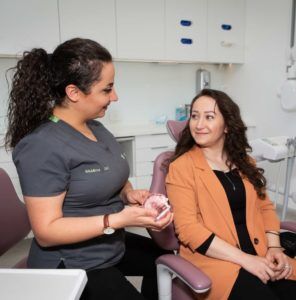Dental care is an essential part of our overall health and wellbeing. However, many people hold onto myths and misconceptions about dental care that can actually harm their teeth and gums. In this article, we’ll explore some of the most common dental myths and misconceptions and debunk them with facts and science.

Myth #1: You only need to see a dentist if you have a problem.
Many people believe that they only need to see a dentist if they have a toothache or another dental issue. However, this is a myth. Regular dental check-ups are crucial for maintaining good oral health and preventing problems from developing in the first place. A dentist can identify early signs of decay, gum disease, and other issues and provide treatment before they become more serious.
Myth #2: You don’t need to brush your teeth if you use mouthwash.
Mouthwash is a useful tool for freshening your breath and killing bacteria, but it’s not a replacement for brushing your teeth. Brushing your teeth twice a day is still the most effective way to remove plaque and prevent cavities. Mouthwash should be used as a supplement to brushing and flossing, not as a replacement.
Myth #3: If your teeth look and feel fine, you don’t need to see a dentist.
Many dental issues, such as gum disease and cavities, can be present without any visible symptoms. Regular dental check-ups are essential for identifying and treating these problems before they become more serious. Even if your teeth look and feel fine, it’s still important to see a dentist for regular check-ups and cleanings.
Myth #4: Sugar is the only thing that causes cavities.
While sugar is a major contributor to tooth decay, it’s not the only culprit. Starchy foods like bread and potatoes can also contribute to decay by breaking down into simple sugars in the mouth. Acidic foods and drinks, such as citrus fruits and soda, can also erode tooth enamel and lead to decay.
Myth #5: Brushing harder is better for your teeth.
Many people believe that the harder they brush, the cleaner their teeth will be. However, brushing too hard can actually damage your tooth enamel and gums. Brushing gently with a soft-bristled toothbrush is the best way to clean your teeth without causing damage.
Myth #6: Baby teeth don’t matter because they’ll fall out anyway.
Baby teeth play a crucial role in a child’s development, and neglecting them can lead to problems later on. Baby teeth help children learn to speak and eat properly and serve as placeholders for adult teeth. If baby teeth are lost too early due to decay or injury, it can lead to problems with speech, eating, and the development of adult teeth.
Myth #7: You should brush your teeth immediately after eating.
While it’s important to brush your teeth twice a day, brushing immediately after eating can actually do more harm than good. Brushing too soon after eating can actually push acid and bacteria deeper into the enamel, causing damage. It’s best to wait at least 30 minutes after eating before brushing your teeth.
Conclusion
It’s important to separate fact from fiction when it comes to dental care. Regular dental check-ups, brushing and flossing twice a day, and avoiding sugary and acidic foods are all essential for maintaining good oral health. By debunking these common dental myths and misconceptions, we can all take better care of our teeth and gums and enjoy a healthy smile for years to come.
0 comments on “Common Dental Myths and Misconceptions”